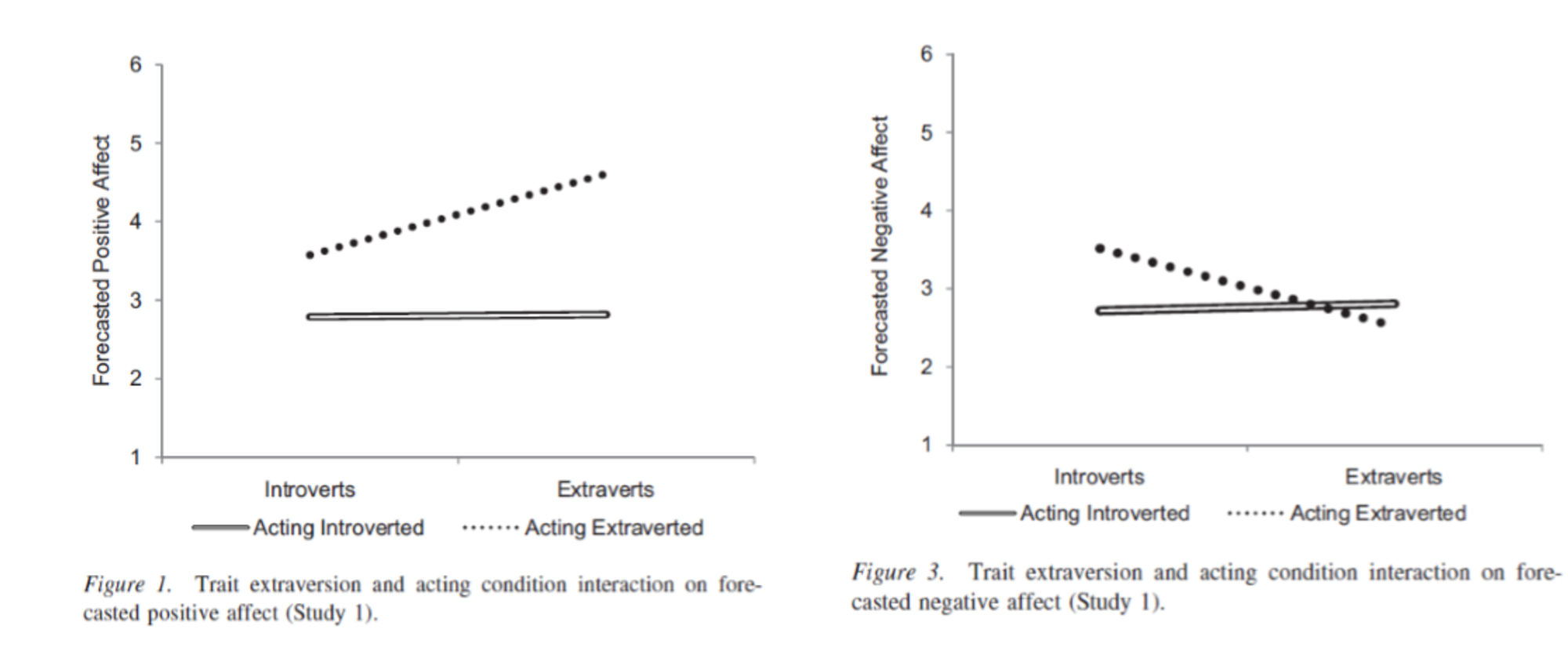Extraverion
Both quantity & quality of social relationships matter - Key difference between extraverts/introverts
- in the quantity of social relationships and time
- Introverts do NOT have “deeper” relationships than extraverts
Why Extraverts happy
- cheerful disposition
- high quantity of social interaction
- high activity level
- More focus on “gains” than “loss”

Even act extravert make us happy - introverts' predict false correctness of extravert is higher to (NA/PA) all
Social interaction
Sheer amount of social interaction - correlated to SWB
Week(casual) tie relation - important than strong tie when less strong tie interaction (even to strangers)
Experience
Three condition - connection, solitude, control
- Prediction: Solitude > Connection
- Actual experience: Connection > Solitude (also true for Introverts)
Collectivism has narrow trust radius → probably lowers interactions with “weak ties” (need socially “fearless”)
but daily time spent socially & happiness reaches a “satiation” point
Activity level
Activity level correlated to happiness → idleness is pain
- experiment require to choose between in-front candy and far-away candy

underestimated NA by do nothing → idleness
idleness is so powerful so it is sometimes defined as motivation of most behavior
Cognitive Styles, Beliefs
Another predictor of SWB, besides temperament & personality
However, more chance to change
Optimism <-> Pessimist
tendency to believe things will happen in life as good - by genetic reason to fast recover (ex. self-efficacy)
- most people has optimism ← Physically & Psychologically, optimists do well to human
- “positive illusions” are prevalent (especially in Western cultures) - illusion of (have) control (self-overestimate)
- even to near person and friends, even beyond cognition either
Why do better
- try things pessimists normally wouldn’t - try harder ← expecting to succeed
- different future self-investment patterns - Pessimists, compared to optimists, spread their time/resources around multiple domains → ultimately, hurting their chances of succeeding in any single domain (become generalist - optimist become specialist)
But over optimism may get future depression
Social Comparison
Key cognition Style of unhappy person
- enjoy absolute value - enjoy relative value
- Attending primarily to one’s own outcomes, acknowledging others’ successes without envy seems to offer a better prescription for well-being

 Seong-lae Cho
Seong-lae Cho